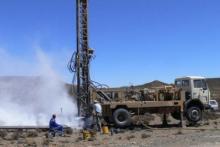Quenching A Thirsty Country
Only 40% of all the available groundwater resources are developed in South Africa and the development of surface water are becoming more costly and challenging. The Minister of Water and Environmental Affairs acknowledge this and identified the need to increase the use of groundwater as one of the interventions to address the increasing water requirement of towns and communities.
